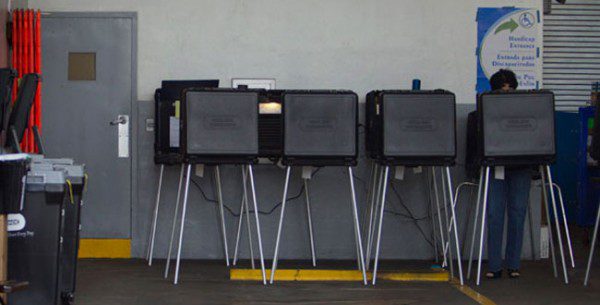 Governor Rick Scott ordered Florida’s secretary of state to purge the state’s voter registry of ineligible voters.
Governor Rick Scott ordered Florida’s secretary of state to purge the state’s voter registry of ineligible voters.
The state’s position: “…firmly committed to doing the right thing and preventing ineligible voters from being able to vote.” No one could argue with that position. I certainly don’t want my vote diluted by a vote from an ineligible voter.
So what is the problem? First, the federal government has established procedures for voter purges — procedures that the state must follow. Second, the data used to determine who is eligible or ineligible must be accurate so eligible voters are not purged from the list.
A lot of words have been written about the governor’s intentions and timing. Let’s put the question of political motivation aside. The laws of Florida and the federal government have established procedures for voter purges. If we follow them, the question of political motivation becomes irrelevant.
Basically, the federal Voting Rights Act of 1993 says that no state can purge voter registration lists within 90 days of any federal election. Gov. Scott says that the federal law is incorrectly interpreted. He interprets the federal law as applying only to purges of once- eligible citizens who became ineligible through criminal conviction, death or mental incompetence. Scott said he is only going after voters who were not eligible to register because they were not citizens of the United States.
We know where this is going. Lawsuits filed by the state against the federal govern- ment and lawsuits filed by the federal government against the State of Florida will end up in the federal courts. Which, incidentally, will cost the taxpayers of Florida a great deal of money, money that could be used far more effectively in our cash-starved state.
Florida used the driver’s license registration as the database for searching out ineligible voters. When you make application for a driver’s license the question of citizenship is asked. Unfortunately, this database is not updated as non-citizens become citizens. So, deciding the right to vote based on the fact that the individual seeking to vote was not a U.S. citizen years ago, when he or she first applied for a driver’s license, is a very, very poor source of information.
The state provided the counties with a list of voters that might not, based upon driver registration records, be U.S. citizens. The state instructed the county supervisors of elections to write to each registered voter on the list, state Florida’s position. If the voters don’t respond within 30 days, their names will be stricken from the registration list and their vote, if they vote, will not count. The burden of proof should be on the state, not the registered voter.
The supervisors of elections of all but two counties have stopped the purge determining that the data upon which they are to proceed is too flawed to be of value.
The governor stated that Florida has been asking the Department of Homeland Security for data on citizenship since last October. He is asking the Justice Department to instruct Homeland Security to share the information so the state can proceed with the purge. Scott said, “the process would have been far less controversial and far easier had Homeland Security not ‘stonewalled’ the state.”
Where do we stand as of this date? Recently the U.S. Department of Justice filed suit against Florida to stop the purge based on two facts: one, the 90-day provision and, secondly, the inaccuracy of the driver’s license database.
The State of Florida has filed a lawsuit accusing Homeland Security of unlawfully refusing Florida access to a federal database that could help the state’s purge.
By the time the courts have ruled, and appeals have been heard, the state’s primary election will have passed and Florida will not have restarted its purge of ineligible voters. Then, if the 90 day rule holds, we will be with- in 90 days of the general election. A purge will continue after November obviously with no effect on the presidential elections, which in my opinion, is the whole purpose of an expanded purge.
We appreciate your opinions on this column whether in agreement or disagreement. Please send your comments to (fax number) 305-662- 6980 or email to letters@communitynewspapers.com. The opinions expressed in this column are not necessarily those of this newspaper, its editors or publisher.







Comments are closed.